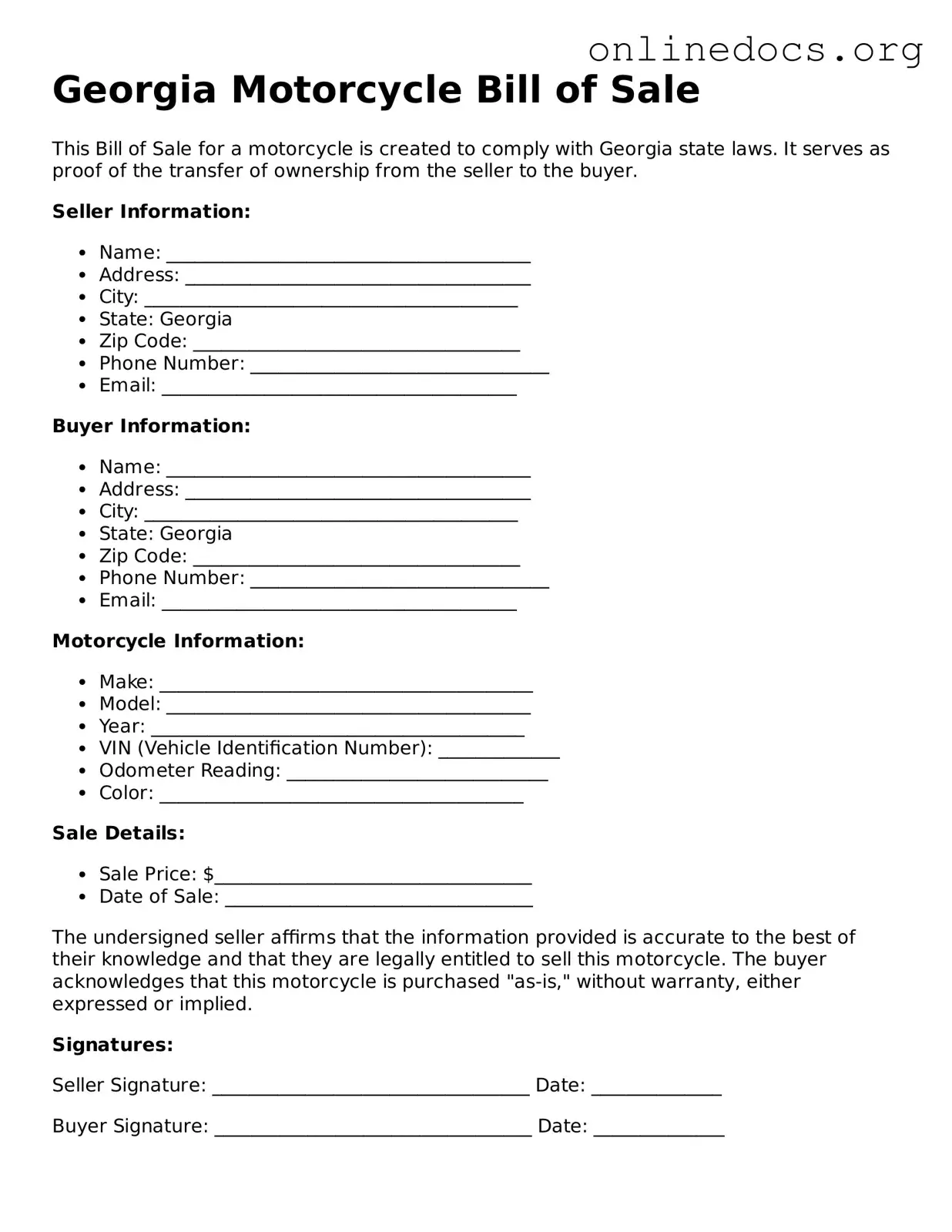When filling out the Georgia Motorcycle Bill of Sale form, many individuals overlook essential details that can lead to complications. One common mistake is failing to provide accurate information about the motorcycle itself. The make, model, year, and Vehicle Identification Number (VIN) must be precisely stated. Omitting or misrepresenting any of these details can create issues during registration or future transactions.
Another frequent error involves the seller's signature. Some people neglect to sign the document, believing that their printed name suffices. However, a signature is crucial for validating the sale and confirming the transfer of ownership. Without it, the bill of sale may be considered incomplete.
Incorrect dates often appear on the form as well. Buyers and sellers should ensure that the date of sale reflects the actual transaction date. Using an incorrect date can complicate matters if disputes arise later or if the buyer attempts to register the motorcycle.
Additionally, individuals sometimes forget to include the purchase price. This detail is vital for tax purposes and can affect the buyer's ability to register the motorcycle. Leaving this field blank or entering an inaccurate amount can lead to complications with the Department of Motor Vehicles (DMV).
Another mistake is not providing the buyer's information completely. The form should include the buyer's full name, address, and contact information. Incomplete buyer details can create confusion and hinder the registration process.
Some individuals fail to check for any outstanding liens on the motorcycle before completing the sale. If a lien exists, the seller may not have the legal right to transfer ownership, leading to potential legal issues. Buyers should always verify that the motorcycle is free of any liens before finalizing the transaction.
Misunderstanding the requirements for notarization can also lead to errors. While notarization is not always necessary for a motorcycle bill of sale in Georgia, some people mistakenly assume it is required. Clarifying this requirement can save time and effort.
Furthermore, neglecting to make copies of the completed bill of sale is a mistake that many make. Both the buyer and seller should retain a copy for their records. This documentation can be invaluable if any disputes arise in the future.
Finally, individuals sometimes rush through the process, leading to careless mistakes. Taking the time to review the completed form carefully can prevent errors and ensure a smooth transaction. A thorough review helps both parties feel secure in their agreement and protects their interests.
